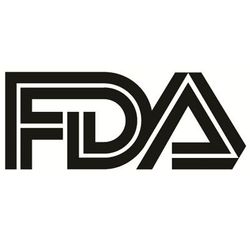
OR WAIT null SECS
More Biosimilars, New Policy Levers Needed to Speed Biosimilar Adoption
Adoption rates of infliximab biosimilars only sped up after introduction of a third biosimilar.
New research into uptake and insurance coverage of infliximab biosimilars has suggested that 1 or 2 biosimilars may not generate enough competition to speed adoption rates and policy levers are needed to speed up Medicare adoption.1
“Research shows coverage restrictions on biosimilars when there were fewer competitors on the market, and from the small molecule literature, we know that uptake increases with each entrant. No research has reported the adoption of biosimilar infliximab across these two important market forces, and understanding their interaction can shed light on market dynamics,” lead investigator Eric T. Roberts, PhD, research specialist, University of California - San Francisco, and colleagues wrote.1
The investigators analyzed data from the Rheumatology Informatics System for Effectiveness and included all infliximab biosimilar and reference administrations to adult patients between April 2016 to September 2022. There were 659,988 infliximab administrations in 37,560 unique patients (70% women; 72% non-Hispanic White; mean age 63.1 years old) that were covered by Medicare (52%) Medicaid (4.8%), or private insurance (43%).1
They modeled the effect of infliximab-dyyb (released November 2016), infliximab-adba (released July 2017), and infliximab-axxq (released July 2020) on Medicare, Medicaid, and private insurance uptake with an interrupted time series.
“Previous research has demonstrated that biosimilars administered to treat higher prevalence and/or chronic conditions are often excluded from commercial formularies and that pharmaceutical companies may use rebates to pharmacy benefit managers to maintain market share over these highly profitable indications,” Roberts and colleagues wrote.1
Roberts and colleagues found that biosimilar uptake rose slowly with the first and second biosimilar releases, with small average annual increases in Medicare (3.2%), Medicaid (5.2%), and private insurance (1.8%) uptake from 2016 to June 2020. After the third biosimilar was released in July 2020, Medicaid (13%) and private insurance (16.4%) uptake increased greatly but Medicare uptake (5.6%) remained low. Medicare uptake continued to lag and by September 2022 was 24%, while Medicaid uptake was 43.8% and private insurance uptake was 38.5%. Notably, there was a delay in increased uptake for patients with private insurance after the introduction of the third biosimilar until January 2021.1
“Specifically, policies could incentivize the development and market entry of multiple biosimilars, streamline regulatory approval to reduce time to market, and encourage pricing strategies that promote competition. Additionally, policies could ensure transparent pricing and reimbursement practices as well as educational initiatives to increase clinician and patient awareness and acceptance of biosimilars,” Roberts and colleagues concluded.1
Although biosimilars continue to face an upward slog to uptake, some positive news was announced this week with the addition of adalimumab-aaty (Celltrion USA), a Humira biosimilar, to the Costco Member Prescription Program, allowing eligible members and their dependents to obtain the drug at a substantial discount.2
"We are pleased to partner with Costco, the largest warehouse club and third-largest retailer in America," Francine Galante, Vice President, Market Access, Celltrion USA, said in a statement.2 "We are committed to increasing patient choice through access to biosimilars. The inclusion of adalimumab-aaty to the Costco Member Prescription Program will expand patients' treatment options and help reduce healthcare costs."


